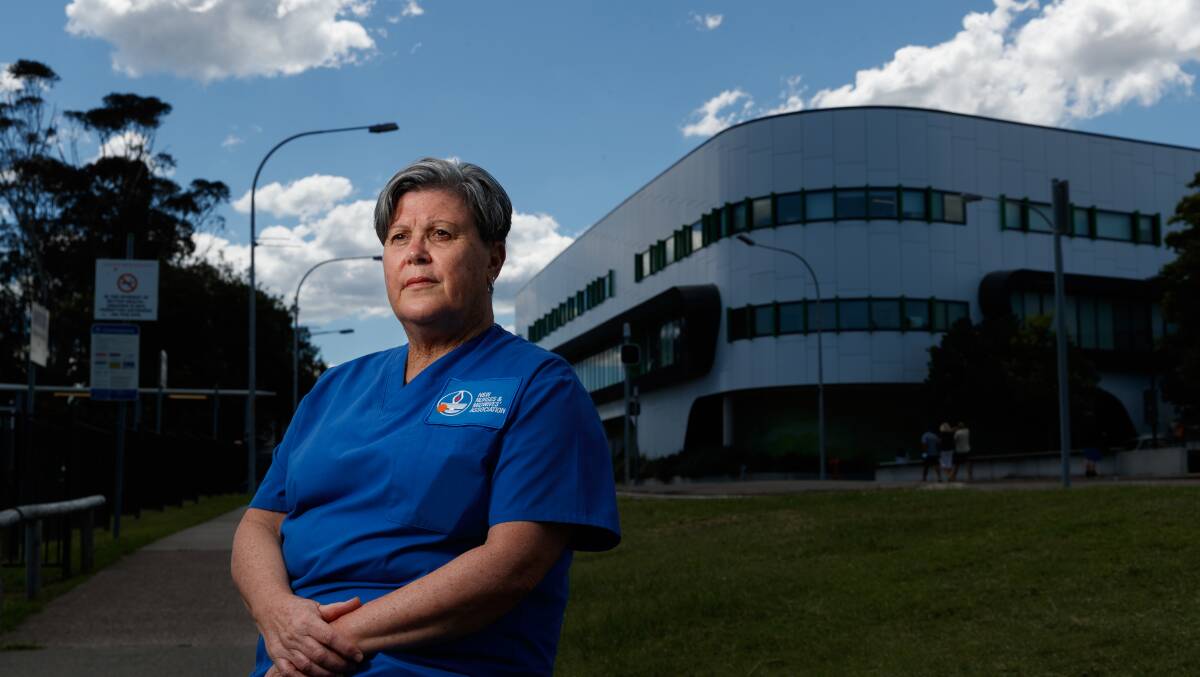
HUNTER nurses have labelled current working conditions "horrendous" and will be among the thousands who walk off the job next week as part of statewide strikes.
The industrial action scheduled for Tuesday is being organised by the NSW Nurses and Midwives Association (NSWNMA) - a union which represents 48,000 nurses in NSW public hospitals - and will be the first of this scale in the NSW sector since July 2013.
"We need to make nursing more attractive," NSWNMA delegate for the John Hunter Hospital and John Hunter Children's Hospital branch Joanne Patterson said.
"People are always going to get sick and are always going to need nurses. But why would you come and get flogged everyday and get abused by the public for minimum pay. Most people would rather do anything else."
Ms Patterson has worked at John Hunter Hospital since it first opened, having been part of the neonatal intensive care unit's shift from the Mater in the early 90s.
"Patients are coming to hospital with worse conditions and less healthy generally than we used to see. So it takes more time to nurse them and we don't have enough staff for that," she said.
"We've had cardiac surgery cancelled because we don't have enough nurses here to run the intensive care unit."
While votes on industrial action are still underway in some branches, the strikes on February 15 will see hospital staff across the state strike for up to 24 hours.
According to Ms Patterson, the emergency department at John Hunter will reduce to "minimal staffing" for 12 hours and levels in the the rest of the hospital will be reduced for 24 hours. She added that enough staff will remain to "care for the critically ill and preserve life".
"The branch met yesterday and we've had a majority vote - around 97 per cent - to go out and strike on Tuesday with all the other hospitals across the state."
As of Wednesday afternoon, staff at Maitland, James Fletcher, Dungog and Muswellbrook hospitals are set to strike for 24 hours with Hunter ACAT nurses, Lower Hunter Community Health nurses and staff at the Waratah Mental Health Centre choosing to down tools for eight a half hours.
Along with rallies in Newcastle, Coffs Harbour, Bathurst, Bega, Lismore and Tamworth, the strikes will coincide with union members gathering at NSW Parliament on its first sitting day for the year.
Newcastle's rally will see staff from hospitals across the Hunter flocking to Civic Park from 10am.
The union's primary ask is that the government combat understaffing by implementing nursing and midwifery staffing ratios.
"We want ratios to match Victoria and Queensland - so a ratio of one nurse to four patients on the main floors and one to three in emergency and paediatrics," Ms Patterson said.
"At the moment we are running on one nurse to eight patients at times.
"But you still get more money picking up glasses at the pub than our AINs in nursing homes do. It's horrendous."
A fair pay rise, above the 2.5 per cent offered by the government, is also being called for, along with no changes to COVID-19 workers compensation.
The government is currently seeking to scrap an automatic presumption under workers' compensation rules.
If successful, essential workers will have to prove they caught COVID-19 on the job to access compensation, something unions say is virtually impossible.
NSW Health responded to questions about the upcoming action by saying the current flexible staff to patient ratio system "helps to ensure the right number of staff in the right place at the right time".
"NSW Health acknowledges the health workforce has worked tirelessly during the two years of the COVID-19 pandemic. NSW Health recognises and is thankful for its committed workforce," a spokesperson said.
"There are more nurses and midwives in NSW public hospitals than at any other time in history. Since the start of the pandemic, NSW Health has engaged in forward planning with clinicians to ensure our hospitals have capacity to care for COVID-19 patients and meet workforce surges if required."
NSW Premier Dominic Perrottet said on Wednesday that patient ratios being called for by the union aren't effective.
"The advice that I've received is that there is substantive challenges to that and it hasn't actually worked so well in other states," he said.
He called on the union to work through the issues without industrial action.
"What I want is reasonable, robust discussions to get outcomes," he said.
"Let's not play politics. We don't want to get back to the old union games."
However, NSWNMA General Secretary Brett Holmes said on Wednesday the union has sought to meet with the premier, but has been told he is too busy.
"We don't recommend industrial action lightly, especially when a pandemic is still underway, but the status quo can't continue," Mr Holmes said.
Citing already poor pre-COVID conditions, Mr Holmes said it has been a "very traumatic two years" for nurses and midwives.
"Even before COVID, nurses would commonly talk about not having a toilet break, not being able to get a lunch break, not been able to get a drink," he said.
"That has all been multiplied a hundredfold."
"If the premier wants a well-staffed, well trained and resilient nursing and midwifery workforce in the public health system, then he must act now and implement shift by shift ratios across NSW."







